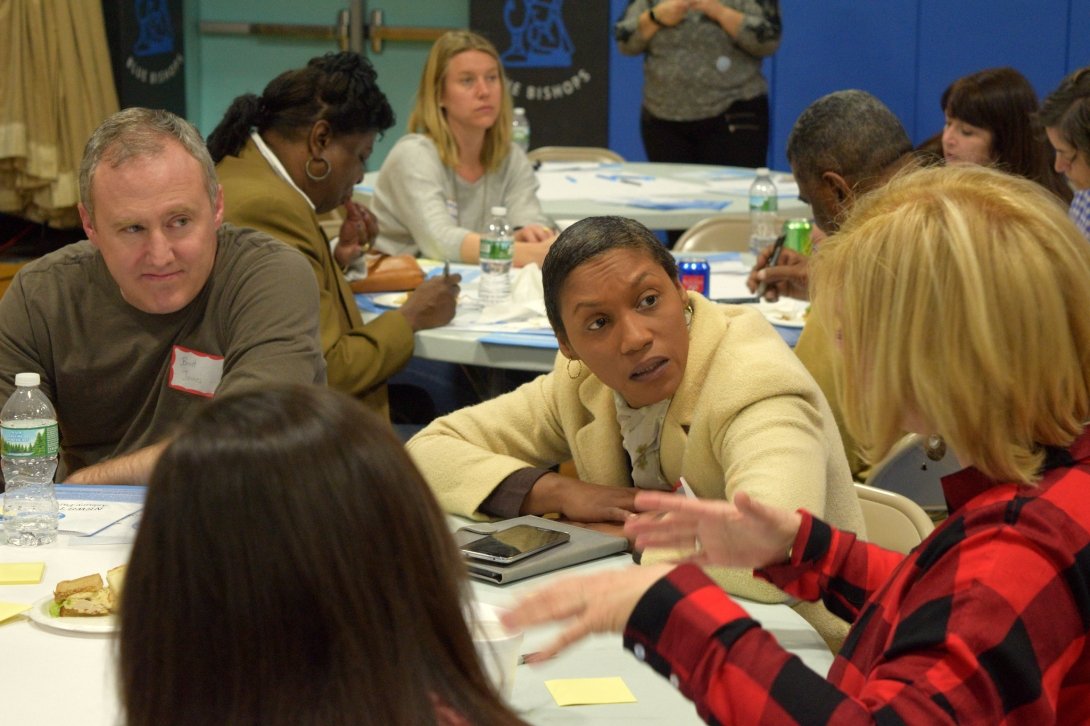Report Shows Frustration With New Jersey News Coverage

Mike Rispoli
Over the past three years, advocacy organization Free Press has held 16 public events around New Jersey, gathering more than 700 residents and journalists to discuss information needs and brainstorm ideas for improving local news.
Through that process — part of its News Voices project — Free Press also surveyed some of its members and forum participants to assess their attitudes about local news and what types of coverage they’d like to see more of.
The Center for Cooperative Media teamed up with Free Press to analyze the data it collected. Granted, it’s not a large sample — 305 survey responses — and was mostly self-selected, but coupling what it found with a review of transcripts from the events provided an illuminating look into how people here feel about their local news organizations, and what they want them to do better.
What we found can be summed up in one word: frustration.
That’s not surprising, given the widespread cuts to local newsrooms over the last decade, compounded by the revision of the business model in the digital environment.
Among several interesting findings, three stood out:
-
An overwhelming 81 percent of respondents want their local news outlets to do a better job of covering local government. Residents listed public spending, information on local construction projects and economic development as just a few of the issues they wanted to know more about.
-
Residents from communities with low household incomes express greater frustration with their local news than residents from higher-household-income communities. And though our data do not address this, they are likely getting short shrift when it comes to the quality and quantity of the journalism being provided.
-
In general, local daily newspapers are at once the most relied-on source for local news and highly disliked, which suggests a wide opening for new outlets to satisfy a strong, and unmet, demand.
New Jersey residents have noticed that their local news is, in general, not what it used to be; several focus group participants spoke in detail about the “glory days” when their local news outlets gave them in-depth and investigative reporting about their communities.
This current dissatisfaction is likely a combination of the decades of layoffs and downsizing at legacy outlets, and a lack of familiarity with the new crop of digital-native local-news websites that have begun to proliferate across the state.
Building a strong and vibrant local journalism infrastructure is a daunting challenge, but a necessary one. It is also complex; to serve their communities for the long term, news organizations need to find a funding model that is sustainable.
This will depend on several things: re-educating the general public about the importance of local news; creative solutions to funding; supporting more organizations that fall outside of traditional newsrooms; and even strengthening local economies.
Mike Rispoli, director of the News Voices project, said he believes media outlets need to do a much better job of listening to the public.
“If media outlets make listening to the public a priority, journalists can easily find out what the public thinks about local news, what types of stories they want to see and how they can work together to made decisions around coverage,” Rispoli said.
“The key,” Rispoli continued, “is thinking about what voices aren’t being heard from and bringing those people into a face-to-face conversation, which goes a long way in building trust and meaningful relationships with the public.”
This analysis is part of a larger project by the Center for Cooperative Media to map the local news ecosystems in the state of New Jersey. With Free Press and other partners, we are providing data, insight and solutions for local news in the digital age.
We invite you to read our entire report based on Free Press’ survey and meetings.
About this report: The Center for Cooperative Media and Free Press teamed up to analyze results from a survey of New Jersey local news consumers and the transcripts from a number of focus groups Free Press held to assess local information needs. The analysis was conducted by Sarah Stonbely, the Center’s research director. Contact her at stonbelys@montclair.edu.